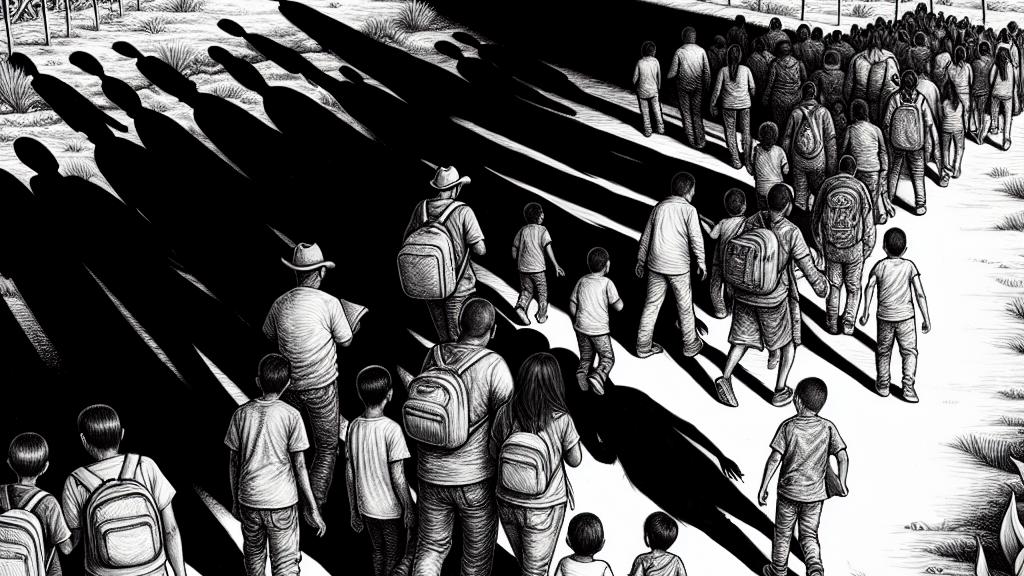The Impact of US Immigration Laws on Migrant Children
Overview
- U.S. immigration laws significantly shape the arduous choices faced by migrant children during their perilous journeys.
- Young migrants from Central America endure intense risks and gut-wrenching decisions as they embark on their quest for safety in the U.S.
- A profound understanding of U.S. immigration processes not only influences their paths but often leads to harrowing choices reflecting their desperate situations.

Understanding the Journey
The journeys of migrant children fleeing violence and poverty in Central America have recently garnered worldwide attention, illuminating their struggles and the socio-political issues they escape. As these brave youths traverse the treacherous terrain of Mexico, the dangers they face are unimaginable—ranging from gang violence to exploitation and hunger. The situation is made even more complex by U.S. immigration laws. These laws put immense pressure on children, forcing them to make life-altering decisions: some change their routes for safety, while others choose to hide traumatic events from their past in hopes of achieving legal status. This predicament underscores an alarming reality; U.S. legislation casts a long shadow, affecting the lives of these vulnerable children, amplifying their fears and uncertainties as they navigate threats far beyond their homeland.
The Risks Involved
The harrowing experiences of these children are not mere statistics—each story is a poignant reminder of the urgent need for reform. Take Edelmira, for instance, a resilient 17-year-old who recounted her traumatic journey. After facing a brutal sexual assault shortly after entering Mexico, she experienced not only physical pain but also psychological turmoil. Yet, out of fear and misinformation, she opted not to report the crime, having been told it would not enhance her chances for asylum in the U.S. Such tragic decisions highlight a disturbing pattern among young migrants: the harder choices they make in search of safety often come with insurmountable emotional costs. Furthermore, countless other children face similar, terrifying encounters. These stories expose the tragic realities of their journeys, calling for immediate international attention and humanitarian support to address the deep-rooted issues fueling migration.
Legal Protections and Challenges
When these courageous unaccompanied minors finally reach the U.S., they often find themselves categorized under Special protections, a designation that helps them remain in the country while their immigration cases are processed. However, the path is fraught with obstacles. A significant roadblock arises from the requirement for a family member or legal guardian, complicating the precarious lives of these already-vulnerable youths. For example, Facundo, a determined 17-year-old from Guatemala, had meticulously arranged to meet a family friend at the border, hoping for a safe passage. Yet when he learned that his friend wasn't a close relative, he found himself in a distressing situation—potentially facing a lengthy detention instead of the hoped-for reunion. This reality illustrates the paradox of U.S. immigration laws: intended to provide safety and support, they often trap these children in a chaotic cycle of uncertainty and desperation. By addressing these systemic issues, we can hope to create a more just and empathetic immigration system that truly reflects human dignity.

Loading...